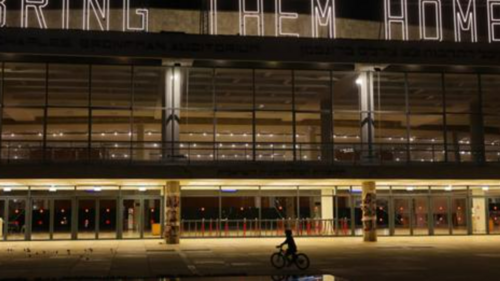News
Israel and Hamas Reach Four-Day Truce 50 Hostages to Be Freed

Israel and Hamas have reached a significant agreement, brokered by Qatar, to release at least 50 hostages and numerous Palestinian prisoners. This development follows weeks of intense conflict between the two parties. The deal outlines the release of women and children abducted during raids on October 7, with the total death toll reported by Israel as 1,200, mostly civilians, as reported by Eyewitness News.
Also Read: Afterskool Is Lit Launches WHATS Program in Cosmo City Schools
The agreement, facilitated by Qatar, involves the exchange of Palestinian prisoners for the hostages. The truce, set to last four days initially, aims to provide relief to besieged Gaza residents. The initiation of the truce and the subsequent release of hostages are contingent on specific timelines.
Under this arrangement, the United States confirms the inclusion of three Americans among the hostages set for release. For every ten additional hostages freed, an extra day of the truce will be implemented, according to Israel’s government. The total number of hostages held by Hamas and other militant groups in Gaza is estimated to be around 240.
Israel has committed to a four-day pause in its air, land, and sea assault on Gaza to facilitate the release of hostages. It’s emphasised, however, that this pause does not signal the end of the overall conflict. Hamas welcomes the “humanitarian truce” and announces the release of 150 Palestinians from Israeli jails as part of the agreement.
The war, known as Operation “Swords of Iron,” was launched by Israel in response to the October 7 attacks, with the objectives of securing hostage release and dismantling Hamas. The conflict has resulted in a significant number of casualties, with the Hamas government in Gaza reporting 14,100 deaths, including thousands of children.
The approval of the accord by Israel’s cabinet faced internal challenges, with some within the right-wing coalition expressing misgivings about perceived concessions to Palestinian militants. Despite these concerns, the Israeli government approved the agreement, stressing that the truce does not mark the end of the war.
Gaza residents, enduring the impact of airstrikes and a ground offensive, express hope for relief through the ceasefire agreement. The situation in Gaza has led to widespread destruction, with limited access to essential resources such as food, water, and fuel. International pressure for a humanitarian ceasefire has intensified, and there is optimism that the truce may extend to other conflict zones, such as the Israel-Lebanon border.
Also Read:
Global Call Against Gender-Based Violence: 16 Days of Activism Focus
Follow us on Google News
Photo: Facebook / @Eyewitness News






















